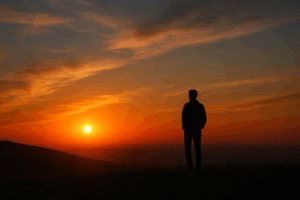Our Fractured Digital Age
When I launched this blog in February 2004, my intent was clear: to track and catalog the rise of social media and the wave of collaboration tools reshaping how we worked, communicated, and created together. It was a time of transformation. Blogs were booming. Wikis were gaining traction. A little site called Facebook had just been born. My goal back then was to pursue an interdisciplinary PhD focused on how these emerging platforms were changing teamwork, innovation, and the very nature of collaboration.
Life, as it often does, had other plans. Family responsibilities and professional demands caused me to delay that academic journey—twice—and eventually I shelved the idea altogether. But the curiosity never left. I kept working in the collaboration space, eventually joining Microsoft to help build what is now Office 365. Later, I worked with several product companies focused on helping people work better together, more intelligently, more humanely.
 About a decade ago, I began partnering with the Marriott School of Management at BYU. With the help of industry sponsors, we ran small research projects examining how people actually used collaboration technology. We dug into usage patterns, behavior changes, and what all this tech was doing to how we worked and related to one another.
About a decade ago, I began partnering with the Marriott School of Management at BYU. With the help of industry sponsors, we ran small research projects examining how people actually used collaboration technology. We dug into usage patterns, behavior changes, and what all this tech was doing to how we worked and related to one another.
I share all this not as a résumé recap, but to give context for where I’m coming from—because right now, looking at the world and especially at what’s happening here in the U.S., I feel like we’re staring down the darker conclusions of the very questions I hoped to explore in that never-finished dissertation.
I’ve spent the last two decades immersed in the promise of technology—its potential to bring people together, streamline ideas, spark creativity, and connect across boundaries. But now? Now I can’t ignore the ways these same tools have become vehicles for division, outrage, and moral decay.
I’m not naïve. I’ve always known tools are neutral. It’s people who bend them toward good or ill. Still, it’s sobering to see how quickly platforms designed to connect have devolved into arenas for conflict, where nuance dies, empathy is mocked, and algorithms reward the loudest, most extreme voices in the room.
As someone who deeply believes in the U.S. Constitution—particularly the First Amendment—I don’t say this lightly. I’m a fierce advocate of free speech. I believe in spirited political debate. I’m also a religious conservative who understands that truth can be uncomfortable and that protecting speech means protecting it even when we hate what’s being said.
But let’s not pretend we’re in a healthy place. The tone of our national discourse has become unhinged. It’s not just toxic—it’s corrosive. It’s not just disagreement—it’s demonization. And social media, once heralded as the great equalizer, is now more often a megaphone for chaos.
I’m not calling for platforms to be shut down. I don’t believe in censoring so-called “hate speech” any more than I believe in criminalizing wrong thoughts. That path leads nowhere good—just ask Orwell. Evil exists. No amount of moderation will root it out. No government committee will fix what’s broken inside us.
What we need is not regulation. What we need is reflection. We need people—individually, collectively—to stop and take stock. To ask: What am I contributing to this moment? Am I building up or tearing down? Am I spreading light or adding to the darkness?
For me, it’s not about retreating from hard conversations or “guarding” my speech out of fear. It’s about being more thoughtful—about what I say, how I say it, and whether I’m listening as much as I’m speaking. I believe we need more peacemakers in public discourse, not fewer. And I don’t think that means softening your convictions or watering down what you believe. You can be bold and principled and still be someone who invites dialogue, not division. I have many close friends whose politics differ sharply from mine, and I value those relationships deeply. But I’ve also seen others walk away, believing disagreement means disconnection. That’s a dangerous path. Whether or not you’re a fan of Charlie Kirk, I think he was right when he said,
“When people stop talking, that’s when you get violence. That’s when civil war happens, because you start to think the other side is so evil and they lose their humanity.”
We can’t let that happen. We have to keep talking—honestly, respectfully, and with a deep belief that every person still has something to teach us.
I haven’t given up on technology. I haven’t given up on people. But I no longer believe the answer lies in the next platform or app or AI. I think it lies in the heart. In conscience. In community. In rediscovering the simple disciplines that kept previous generations sane: faith, family, service, silence.
This blog began as a catalog of a rising tide—one of innovation, connection, collaboration. Two decades later, I still believe in those ideals. But I believe even more in the responsibility we each bear to steward our influence wisely.
The tools are still here. The question is: What will we build with them?
As for me, I choose light.




